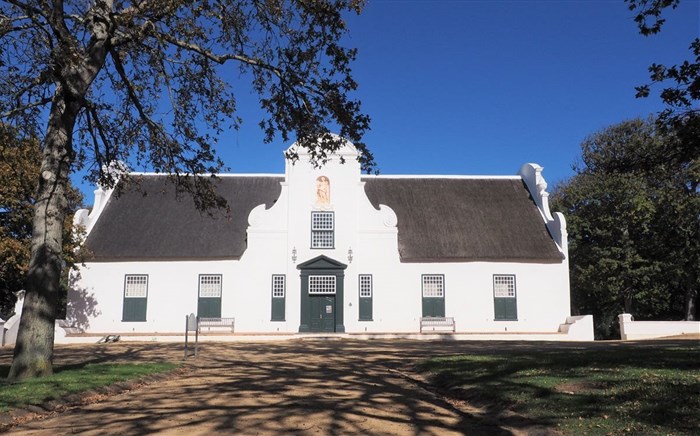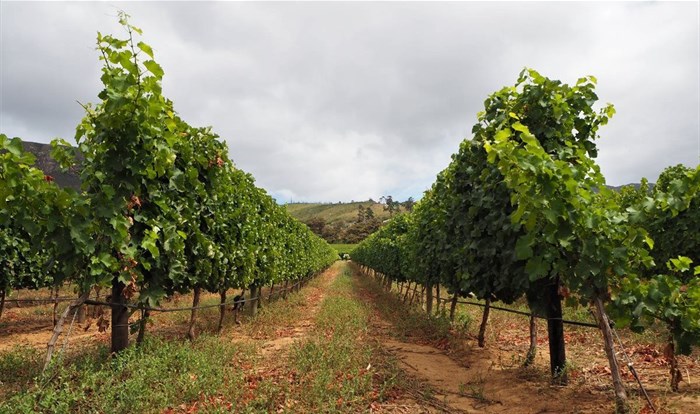
Top stories






More news


Marketing & Media
Ads are coming to AI. Does that really have to be such a bad thing?














"We face a unique challenge, being in not one, but two industries that have been hard hit by the pandemic: namely wine and tourism. No-one knows, so many uncertainties," Naudé shrugged and listed some of the historic challenges that Groot Constantia has witnessed and survived in the last 335 years: Two World Wars, the Boer War, the Great Depression, Spanish Flu, the Bubonic Plague, the earthquake of 1809, The Great Storm of 1865, the Rinderpest, several droughts, fires, and pestilence. And now the insidious Covid-19 pandemic.
The estate is closed to the public, but the 2020 crop has been harvested in strict compliance with safety guidelines pertaining to harvesting and cellar activities.
"We have restructured budgets and cut expenses to the bone, while taking every opportunity to retain as many staff as possible. Our various programs to uplift our workers community continue, and our focus now is to survive so our employees have something to return to after lockdown," continues Naudé

The rumble of a lone tractor invaded our stillness, but it produced a smile from Naudé, a reminder that some work was still allowed.
"We are very grateful that now in level 4 we are able to export again and fulfill backorders."
"Fortunately, there is not a lot of activity on the farm now, just pruning and so forth. Ideally, I would have preferred this pandemic to have hit us one or two months later than it did,"
Naudé smiles wryly. "It is so quiet; you don’t see a single person. It will be lovely to have people back on the estate."
"There is not much we can do right now but sit tight and wait.
Some things have to continue, like insurance payments on the buildings and staff salaries. General maintenance can be moved out or ignored," said Naudé - as he gestured to the oak leaves piled against walls, creating a natural carpet on the pathways "but maintenance is an ongoing task and it can’t be postponed for too long."
• When will we reach a time when public places can open?
• What will the purchasing power of locals be, and will the international spend be on par with what it was a year ago?
• How long will it take for the aviation industry to recover?
• Will long haul flights still be affordable to the pre-Covid-19
market?
The lockdown not only affects individual farms, in some rural towns the wine industry is a substantial contributor to the local economy. Although wine farmers can continue with production, the problem comes with income. Being able to export offers some relief and it has come before too many markets are lost." Naudé explained.
"Local wine sales must be opened up to restore income levels and to secure the economies of smaller towns.
"My concern is the short term," says Naudé. "If the ban on alcohol sales is lifted, it will go a long way to providing much needed, immediate relief. As a low volume, high value estate with sufficient stock, we will be OK, but for high volume, low value farms it is not so easy to just switch on again."
Although quieter than usual, Naudés’ leadership has been pragmatic and his optimistic approach to life, still evident.
"We have worked hard over the years to build up our wine reserves and are thankfully sitting on a very precious stock of award-winning red wine that we will continue to market to the public."
"We are fortunate to be debt-free, and the estate is completely self-sufficient."
"Our winemaking team report that the harvest looks very promising for this years’ vintage, particularly the Chardonnay, which is no stranger to accolades."
"At least the exchange rate will be in our favour"
"On a personal note, I have been exercising and hope to be a lot fitter at the end of the lockdown," Naudé muses optimistically.
Life is uncertain, things happen, but people are creatures of habit. We will be on-track again and things will return to normal.
"Things change so quickly, all we can do is make sure we are prepared to make short term decisions, and to be very flexible in the way we do it. To evaluate the purchasing power of the public and adjust our strategies accordingly."
"Before lockdown we had already prepared for social distancing and hygiene requirements, so we are ready. Now we just have to wait."
"We can only hope that the borders open, the European winter drives visitors to South Africa, and our "swallows" return to Europe with positive feedback for South Africa. As an industry we trust we will survive the wait."
Naudé shrugs again as he says: "Life is uncertain, things happen, but people are creatures of habit. We will be on-track again and things will return to normal," with a laugh, he adds "I hope."
There were no goodbye hugs, just socially distant waves and the sound of footsteps disturbing the leaves and echoing on the ancient cobbles.
